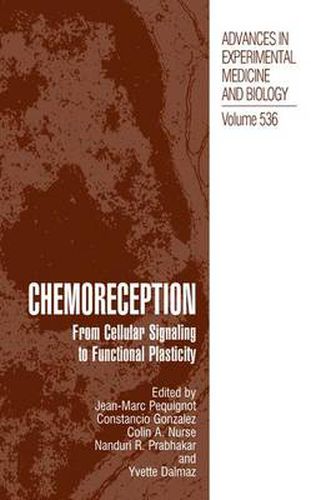Readings Newsletter
Become a Readings Member to make your shopping experience even easier.
Sign in or sign up for free!
You’re not far away from qualifying for FREE standard shipping within Australia
You’ve qualified for FREE standard shipping within Australia
The cart is loading…






This title is printed to order. This book may have been self-published. If so, we cannot guarantee the quality of the content. In the main most books will have gone through the editing process however some may not. We therefore suggest that you be aware of this before ordering this book. If in doubt check either the author or publisher’s details as we are unable to accept any returns unless they are faulty. Please contact us if you have any questions.
Since the early 1990s, the field of oxygen-sensing has evolved from the findings of further oxygen sensing cells both in peripheral and central tissues, of molecules and channels implicated in chemoreception, and of transcriptional factors controlling the expression of a number of genes involved in physiological responses to hypoxia. In order to take into account these new aspects of chemoreception, this volume presents a multidisciplinary approach at the interface of cellular, molecular biology and integrative physiology with the main objective to elucidate the chemosensory processes and associated cardiorespiratory functions in hypoxic/hypercapnic environmental conditions. Specifically, the volume presents up to date major aspects of the chemoreceptor pathway from molecular and cellular signalling processes in the carotid body and other oxygen-sensing structures to central integration of chemosensory inputs and systemic implications. Because sustained changes in oxygen homeostasis are able to induce morphofunctional remodelling which remains poorly understood but may provide further ways of research in physiology and pathophysiology, two sessions were devoted to the mechanisms involved in the processes of plasticity induced by long-term or intermittent hypoxia during the perinatal period or at adulthood.
$9.00 standard shipping within Australia
FREE standard shipping within Australia for orders over $100.00
Express & International shipping calculated at checkout
This title is printed to order. This book may have been self-published. If so, we cannot guarantee the quality of the content. In the main most books will have gone through the editing process however some may not. We therefore suggest that you be aware of this before ordering this book. If in doubt check either the author or publisher’s details as we are unable to accept any returns unless they are faulty. Please contact us if you have any questions.
Since the early 1990s, the field of oxygen-sensing has evolved from the findings of further oxygen sensing cells both in peripheral and central tissues, of molecules and channels implicated in chemoreception, and of transcriptional factors controlling the expression of a number of genes involved in physiological responses to hypoxia. In order to take into account these new aspects of chemoreception, this volume presents a multidisciplinary approach at the interface of cellular, molecular biology and integrative physiology with the main objective to elucidate the chemosensory processes and associated cardiorespiratory functions in hypoxic/hypercapnic environmental conditions. Specifically, the volume presents up to date major aspects of the chemoreceptor pathway from molecular and cellular signalling processes in the carotid body and other oxygen-sensing structures to central integration of chemosensory inputs and systemic implications. Because sustained changes in oxygen homeostasis are able to induce morphofunctional remodelling which remains poorly understood but may provide further ways of research in physiology and pathophysiology, two sessions were devoted to the mechanisms involved in the processes of plasticity induced by long-term or intermittent hypoxia during the perinatal period or at adulthood.